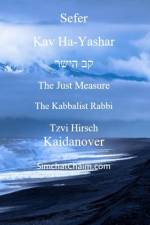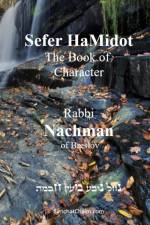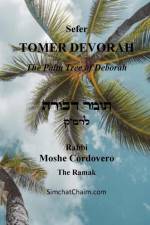von Rabbi Nachman Of Breslov
28,00 €
Sefer HaMidotThe Book of CharacterIn this book, all the traits and conduct are arranged in aleph-bet/alphabetical order. It is divided into two parts that are known to us by the names "Aleph-Bet Old" and "Aleph-Bet New." The first part is a wondrous collection, collected by our pure and holy master in his childhood, all that his huge intellect perceived by understanding one matter from another; and he gathered from all the holy books, everything that he found in them pertaining to morals, conduct, and upright behavior -- which he recorded to have by him for memory's sake. Whatever he found explained in the words of Our Sages of blessed memory, whatever virtue of a good trait, or decrying bad trait -- everything in entirety he would gather little by little and copy them by him in the order of the Aleph Bet by each and every trait, so that he should have it for remembrance, to see with his eyes the virtue of each and every trait and its opposite, "in order to go in the ways of the good and guard the ways of the tzaddikim". Moreover, his powerful intellect perceived many precious and wondrous matters which are not explained outright in the words of Our Sages OB"M; just by the sheer magnitude of his perception he understood one matter from another (heaven davar mistake davar), and perceived precious novelties regarding the traits, from within the [scriptural] verses and from within the words of Our Sages OB"M, that are not explained outright in their words except hinted to [b'remez] for such an intelligent as he.All of it he gathered and assembled together in the order of the Aleph Bet, and in the course of time there was found by him a complete compilation on all the traits, and he instructed to copy all of it, and from his mouth he read to me, and I transcribed in the book (according to Jer. 36:18), in order that this book should not desist from our mouths (Josh. 1:8) to speak (/think) it always, in order that we cease from bad traits. For everyone, when he sees arranged the utter derision of a bad trait and the great loss it causes, and the dreadful violation that is realized through it, he will have compassion on his soul, and he will gird his loins to stand up against it, and he will beseech from He to whom mercy is His, to escape with his soul from the abyss, to save him from those bad traits or bad desires or similar ones, and so in the converse regarding good traits. Furthermore (Prov. 16:20, "One who considers the matter (to weigh his ways -Rashi) will find good" -- true advice on how to guard against a bad trait by guarding against the trait that is close to it, for they are neighbors, and each one protects the other, as (this is) explained subsequently in the introduction that I heard from his holy mouth. The importance of this book, there is no need to explain, to anyone honest, who desires truth, and longs with cherishing to grasp the ways of propriety, certainly he will find in it a repose for his soul. Fortunate is he who takes hold of it, then it will be good for him in this (world) and in the coming (world), because this entire book is founded on verses of the Bible (Torah, Prophets, Scriptures) and on the words of Our Sages OB"M, all of them cogent to the understanding and straight, for those who have found cognizance (Proverbs 8:9).


![Sha'arei Teshuvah - Gates of Repentance [Rabbeinu Yonah] af Hasidic Rabbeinu Yonah Gerondi](https://cdnbackdoor.tales.as/thumbnail/150x225/products/00285/37134/shaarei-teshuvah-gates-of-repentance-rabbeinu-yonah.jpg)
![Sefer HaChinukh - Part A Mitzvahs 1-207 [English & Hebrew] af Beit Levi Barcelona](https://cdnbackdoor.tales.as/thumbnail/150x225/products/00285/61326/sefer-hachinukh-part-a-mitzvahs-1-207-english-hebrew.jpg)
![Sefer HaChinukh - Part C Mitzvahs 401-613 [English & Hebrew] af Beit Levi Barcelona](https://cdnbackdoor.tales.as/thumbnail/150x225/products/00284/51405/sefer-hachinukh-part-c-mitzvahs-401-613-english-hebrew.jpg)
![Book of Esther - Megillah Esther [Hebrew & English] af Sages of the Great Assembly Mordechai](https://cdnbackdoor.tales.as/thumbnail/150x225/products/00285/62987/book-of-esther-megillah-esther-hebrew-english.jpg)
![Sefer HaChinukh - Part B Mitzvahs 208-400 [English & Hebrew] af Beit Levi Barcelona](https://cdnbackdoor.tales.as/thumbnail/150x225/products/00285/26119/sefer-hachinukh-part-b-mitzvahs-208-400-english-hebrew.jpg)
![Orchot Chaim L'HaRosh [English with Hebrew] af Rabbeinu Asher Ben Yehiel](https://cdnbackdoor.tales.as/thumbnail/150x225/products/00283/56474/orchot-chaim-lharosh-english-with-hebrew.jpg)
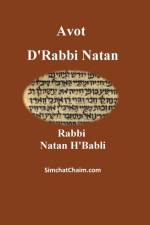
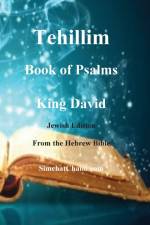
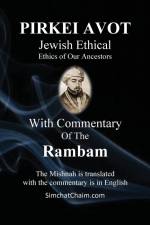
![PIRKEI AVOT - Ethics of Our Ancestors [Jewish Ethical] af Rabbi Judah Hanasi](https://cdnbackdoor.tales.as/thumbnail/150x225/products/00282/21040/pirkei-avot-ethics-of-our-ancestors-jewish-ethical.jpg)
![The Beginning of Kabbalah Wisdoms - 226 rules & statements In Kabbalah [Hebrew & English] af Kabbalist Kolomous Kalman Altessler](https://cdnbackdoor.tales.as/thumbnail/150x225/products/00282/21005/the-beginning-of-kabbalah-wisdoms-226-rules-statements-in-kabbalah-hebrew-english.jpg)
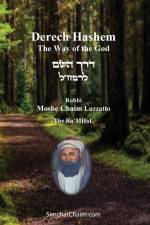
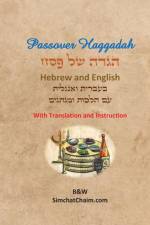
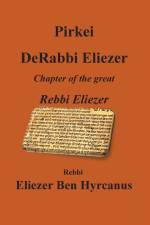
![Pirkei DeRabbi Eliezer - Chapter of the great Rebbi Eliezer [Hebrew With English Translation] af Rebbi Eliezer Ben Hyrcanus](https://cdnbackdoor.tales.as/thumbnail/150x225/products/00282/06998/pirkei-derabbi-eliezer-chapter-of-the-great-rebbi-eliezer-hebrew-with-english-translation.jpg)

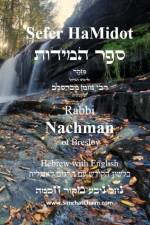
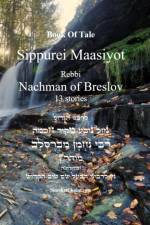
![TOMER DEVORAH - The Palm Tree of Deborah [Hebrew with English translation] af Kabbalist Rabbi Moshe Cordovero](https://cdnbackdoor.tales.as/thumbnail/150x225/products/00281/28753/tomer-devorah-the-palm-tree-of-deborah-hebrew-with-english-translation.jpg)
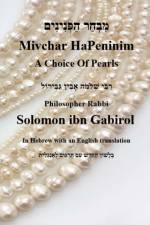
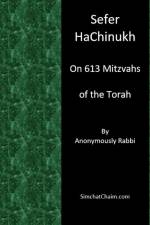
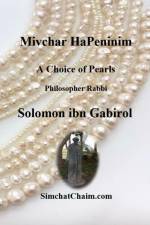
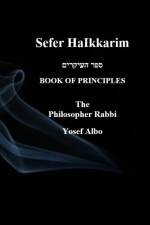
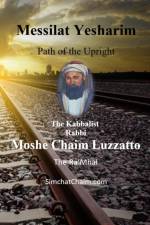
![Pirkei Avot - Ethics of the Fathers [Rabbeinu Yonah] af Rabbeinu Yonah Of Gerondi](https://cdnbackdoor.tales.as/thumbnail/150x225/products/00259/21985/pirkei-avot-ethics-of-the-fathers-rabbeinu-yonah.jpg)
